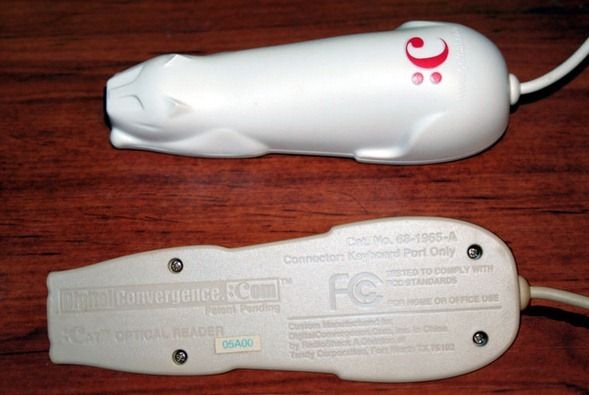A stroke of genius can lead to ideas that may or may not work out when they hit consumers. iPods, Twitter, RSS, and so on, are some ideas that have flourished favorably in today’s world. They started with the same, if not bigger, risks than any other inventions. But their ideas, combined with great execution and perhaps good advertising, resulted in success stories and lie today in your apartment, without you having to think twice about its usefulness.
Some other creations didn’t have such lucky paths. Perhaps their concepts were flawed. Maybe their execution lacked momentum, or the audience it was intended for didn't care for it, to the dismay of the creators. The timing of the creation also matters. Some inventions may just be too advanced (or too simplistic) for society at the moment, but could prosper later (or earlier). Let's look at three inventions that unfortunately didn't take off.
Microsoft Bob (1995)
Remember Clippy from Microsoft Office? It was probably the least favorite office assistant for many users back in the day as it attempted to help them when it discerned what task they were trying to accomplish. I didn’t mind it so much, but if so many users were annoyed by its constant appearance, imagine an assistant that tries to help you with using the entire Windows operating system. Here’s a video showing how Microsoft Bob works.
According to the Wikipedia entry, Microsoft Bob aimed to help you navigate through many different software applications, including word processors, all by showing you the features in the inside of a house. Each room would have furniture and icons, representing programs. As a user, you could add, remove or move furniture to your liking. Each object would have an associated program with it. For example, clicking on a clock would launch the calendar application, while clicking on a pen and paper opened a very simple word processor.
Now, I’m not saying Microsoft Bob was completely stupid. Its purpose was certainly a valid one: to provide a very user-friendly and intuitive way to guide new users through the operating system and its applications. However, the program looked like a game for kids when it targeted adults. It also got heavily criticized by several magazines and blogs, and Microsoft discontinued the product in 1995, the same year it was released.
DigitalConvergence CueCat (1999)
The CueCat was a barcode scanner in the shape of cat (plugged to a computer) that users could whip out when looking, say, at a magazine and for some reason, couldn’t type an URL from the magazine in their computers. I guess that was great for people with desktops that had a mouse but could use another peripheral shaped as a cat to complete the animal peripheral collection, but instead of having it to move the cursor on the screen, this cat-shaped device could scan URLs and such.
While the device sounds just like a predecessor to our QR code-scanning, wireless smartphones, the CueCat raised concerns because it was collecting user data into a database that could match barcodes and user name or address. According to Wikipedia, some hackers were able to block the data sent to DigitalConvergence’s databases, basically, “declawing” the CueCat, augmenting privacy concerns. Investors in the CueCat eventually lost more than $100 million so it’s fair to say it failed commercially.
There seem to be a few CueCats still on the market, on Amazon even, though the reviews aren’t consistent. Reviews for barcode-scanning devices vary across the board. Some users think even QR codes today aren’t always secure, but others still find plenty of uses for such barcode-scanning ideas.
Wink Glasses (2009)
Do you spend too much time gaming and forget to perform some basic biological processes? These USB-powered spectacles might be a good fit for you (keyword here is “might”). They fog up to give you a friendly reminder when you forget to blink for more than 5 seconds. Simple, right? Maybe for hardcore gamers, but not so much in price since these glasses were projected to go for $430 according to CNET.
Since these were released fairly recently, they haven't made much of an impact to call them a success or flop. It’s more of a novelty gadget that I just cannot see anyone using. Gamers, do you have a different opinion? Let me know in the comments.
There are probably plenty of other gadgets that flopped (or were close to) besides these. Do you know of any? Let us know in the comments section below.
Image credit: Impress, Oops Key Image via Shutterstock




